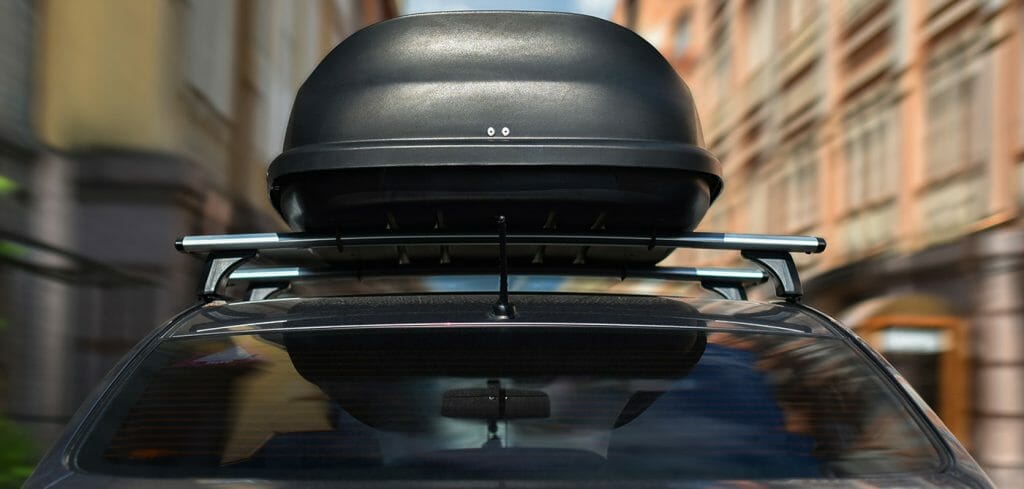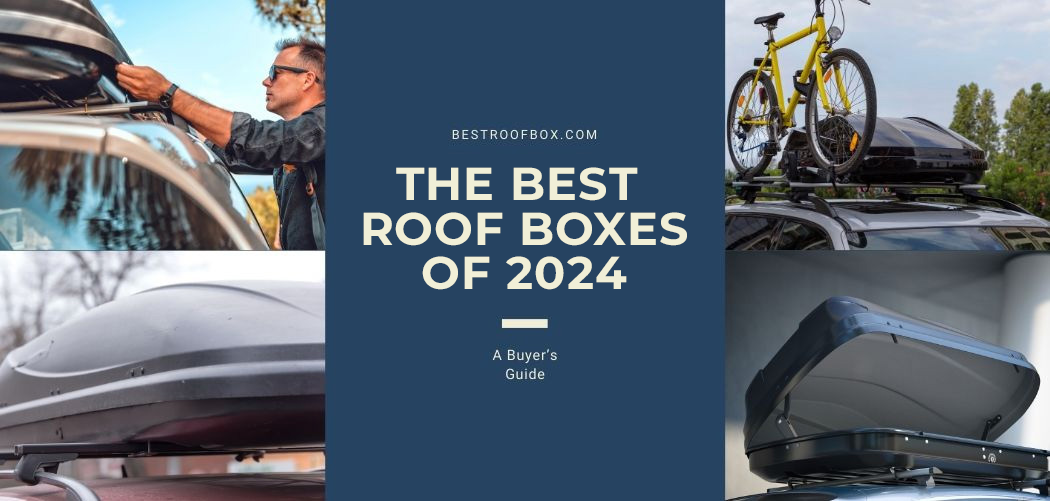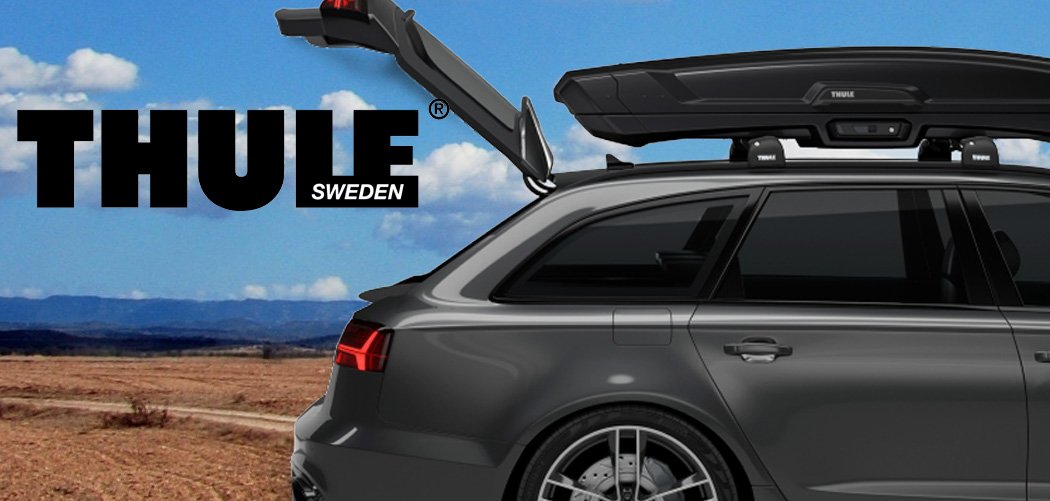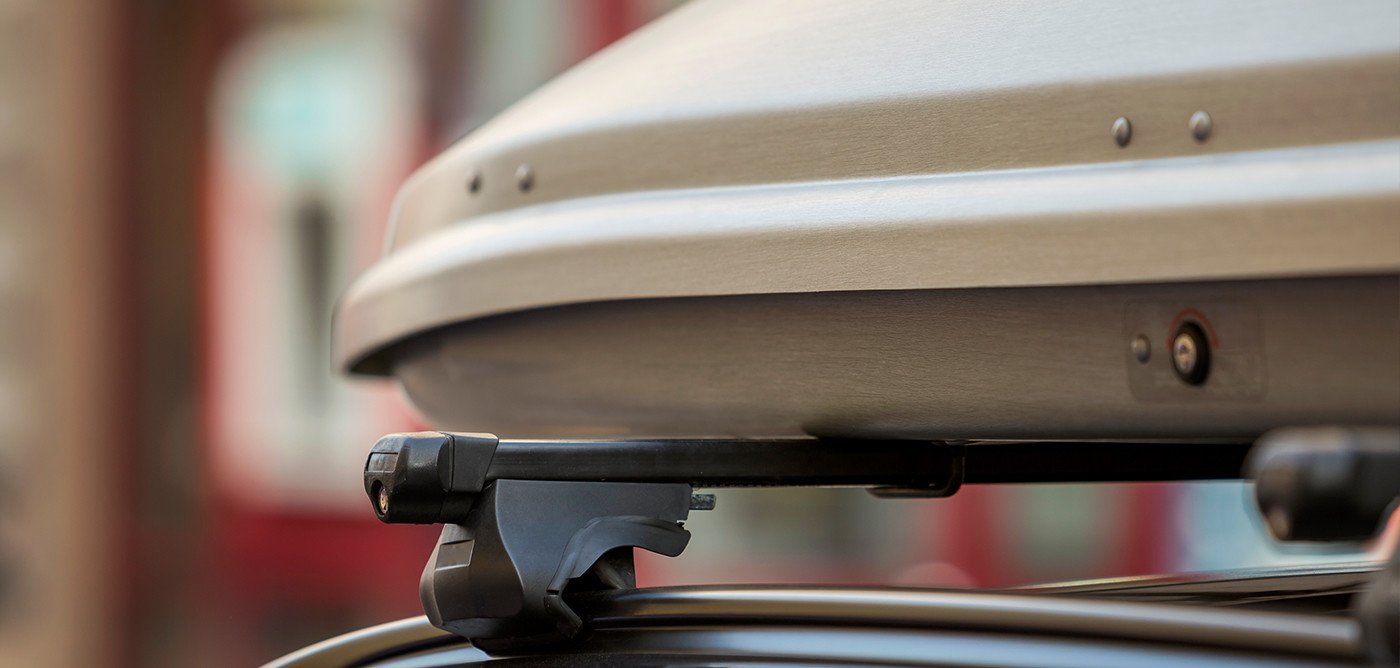When you consider the fact that you will be traveling at speeds upwards of 55 MPH, it’s completely reasonable to question the safety of having a rooftop cargo box sticking up off of the top of the car. The last thing you want is for your carrier to go flying off on the middle of the highway, and in general, this doesn’t really happen.
Frequent travelers and individuals with a lack of space in their vehicles can both benefit from having a rooftop cargo box, but…
Are roof cargo boxes safe?
In short, yes, they are quite safe, and manufacturers design them to specifically handle high speeds and rough terrains. Their aerodynamic shape allows them to cut through the air, which also dramatically reduces the drag on your vehicle. Additionally, with locks, clamps, and bungee cords, among other things, you can make sure your cargo box is tightly secured on top for your car.
Of course, when you are traveling at high speeds and long distances, you don’t want to take any chances. Under certain conditions, your cargo box may actually be unsafe, and it’s important to consider all of the variables so that you make the right decisions.
Table of Contents
3 Tips for Safely Fastening: A Quick Video
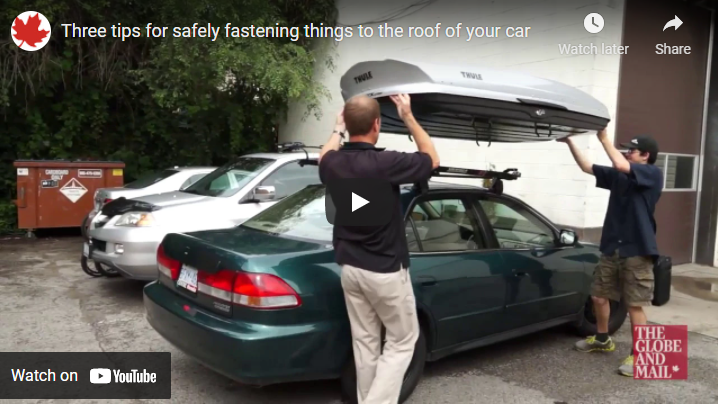
When They Are NOT Safe
Keep in mind that it’s often not enough to simply throw your cargo box on top of your car, latch it, and consider the job done. To really make sure your cargo box is safe, you will want to read the instructions on your equipment and make sure that you install it correctly.
Taking the necessary precautions will also help you improve safety, but there are also a number of situations where your cargo box could be unsafe.
For example, if your cargo box hasn’t been properly installed, it’s definitely not safe. Other times, your cargo box is safe until you forget it’s there and crash into the roof of a low garage.
Even a properly-secured cargo box could be safe if it has been packed poorly. Weighty items that have room to slide back and forth could potentially rock your cargo box loose as the inertia of your vehicle changes throughout your travels.
Other risk factors you might want to keep in mind include the following:
- Loose clamps and straps
- Extreme weather conditions
- Uneven weight distribution
- Speed and weight limitations
- Low tire pressure
- Obstructions to the cargo box lock
It’s important that you read the instructions for your cargo box, as these will point out important things that you will need to be aware of before you leave for vacation.
The Importance of Proper Installation
Installing your cargo box is the most important part of the whole process, and to ensure there are no complications down the road, you want to make sure you install your equipment correctly.
Different cargo boxes will have different requirements when it comes to installations. Some carriers, such as the RoofBag, will fit virtually any vehicle, don’t require special equipment, and require almost no installation, but there are also certain advantages to hard-top carriers as well.
For hard-top carriers, you will often have clamps that need to be tightened, but you want to have the right amount of torque when you are doing this. In the instructions, you will often find torque specifications that tell you everything you need to know.
Over-torquing and under-torquing could both lead to problems and an unsafe cargo box, so it’s important to tighten everything just right. Some cargo boxes actually come with a torque indicator and a secure locking system that tell you when your cargo box has been properly secured and locked. With these systems in place, you will be able to leave the driveway with some peace of mind.
Any errors during installation could become a potential hazard when driving. Unsecured straps, loose clamps, and improper roof racks will all create risky conditions. A properly-secured cargo box, however, will be able to go the entire trip without complications.
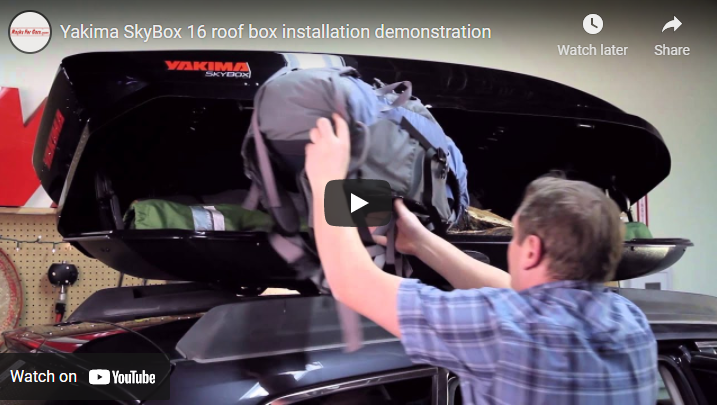
Driving an SUV Versus Driving a Car
 The safety of your rooftop carrier could also depend on the type of car you drive. Are roof cargo boxes safe when it comes to SUVs and other vehicles that sit higher off of the ground?
The safety of your rooftop carrier could also depend on the type of car you drive. Are roof cargo boxes safe when it comes to SUVs and other vehicles that sit higher off of the ground?
Most likely, yes, but it’s important to understand the difference between these two situations. SUVs and other high-sitting vehicles are already at a greater risk of tipping over, and when you add a rooftop carrier, you change the center of gravity.
If you add a lot of weight up top, it’s important that it’s secured and distributed evenly to avoid risky situations. There will already be more wind resistance, and in high winds, a heavy rooftop carrier with an uneven weight distribution could be fairly dangerous in an SUV.
Weight Limits and Speed Limits
Another thing to keep in mind is that safety levels can drop as conditions get more extreme. Cargo boxes are designed to withstand highway speeds and considerable weight, but everything has its limits.
When you are looking at weight limits, you should be more concerned about the roof and rack of your car than the actual cargo box. Different vehicles will have different weight limits, and when you are trying to figure out how much weight you can put in the cargo box, you have to consider the weight of the cargo box itself.
For example, the largest Yakima Skybox carrier has a weight limit of 165 pounds, but weighs 62 pounds in itself, so if you were to load this fully, your vehicle would need to support a total weight of 227 pounds on its roof, not including any additional equipment.
Of course, it’s unlikely that you would stuff your cargo box full enough to reach the full weight limit, but remember that the weight limit for your vehicle could be considerably lower than that of the box.
If your factory rack weight limit is 120 pounds, for example, you need to subtract the weight of the empty cargo box, along will any additional equipment, from the 120 pounds, and that will give you your maximum load weight for the cargo box.
In addition to weight, you also need to be thinking about speed to guarantee maximum safety. In your instructions, you might find a maximum speed limit that tells you how fast you can go with your fully-loaded cargo box.
While these boxes are aerodynamic, resistance increases with speed, so the quicker you move, the more dangerous it is.
Factory Rack or Aftermarket Rack?
Does your car have a roof rack? If not, chances are that you will need to purchase one separately, and cargo box manufacturers often manufacture roof racks that pair with their cargo boxes.
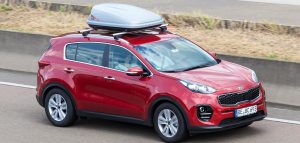 So, are roof cargo boxes safe if you aren’t using the name brand roof rack? The answer could actually depend on the cargo box you buy and the roof rack that you already own.
So, are roof cargo boxes safe if you aren’t using the name brand roof rack? The answer could actually depend on the cargo box you buy and the roof rack that you already own.
Not having the appropriate roof rack could mean that your cargo box won’t fit properly, which is by no means safe, and you don’t want to force a cargo box onto a roof rack that it wasn’t made for.
Luckily, a lot of cargo boxes are designed to fit a variety of cars so that you don’t have to purchase your crossbars separately. The cargo boxes you look at should specify whether or not they fit factory racks.
Although, aftermarket racks and custom-installed racks tend to offer greater flexibility and higher weight limits, so if you are really planning to pack your cargo box full, it may be worth it to have the extra strength. You can also buy a variety of clips, straps, and cords to secure your cargo box even more.
Extra Bungee Cords and Safety Nets
No matter how secure you think your cargo box is, you can always use some extra safety features. The less your cargo box moves the better, and things such as bungee cords and safety nets will secure it to your roof and reduce the amount of rocking.
In the unlikely event your cargo box comes loose, your bungee cords or net may be what saves your belongings from flying off onto the road.
There are several companies that specialize in cargo and rooftop carriers, and these companies also sell a variety of accessories to help you improve safety.
Alternatively, you could even wrap your suitcases in a net and secure them to a sturdy cargo basket. There are a few different ways to carry your belongings on the roof of your car, so it’s all about what makes you feel the most comfortable.
Keep Your Cargo Box in Good Condition
If you want your cargo box to last you a long time without becoming unsafe at some point, you want to take good care of it.
For example, you can grease certain clamps and exposed metals to make sure they don’t corrode from being in the rain over time. Given the importance of these parts, it’s important that they continue to work properly after each use.
You can also prevent unnecessary corrosion or damage by removing your cargo box whenever the weather gets bad. If you have a place you can put it, you don’t have to worry about heavy winds or heavy rains, and these days, cargo boxes are designed so that they can be easily attached and detached.
Keeping the inside of your box clean and any moving parts lubricated protects them from wear and tear, but it’s also important that you find a dry place to store your cargo box when you aren’t using it.
Other Safety Tips
From paying attention to the weather to making sure your cargo box locks are unobstructed, you can protect both your cargo box and the items that are inside of it.
The following safety tips will help you maximize safety before, during, and after travel so that you can enjoy a hassle-free travel experience.
1. Proper Placement of Heavy Items
You don’t want your cargo box to be too weighted down, but you may not want it to be extremely light either. Supremely heavy items should go in your trunk, but when you have slightly heavy items that need to go in the cargo box, you want to make sure that you are distributing the weight.
It’s potentially unsafe when you have one side of your cargo box weighed down more than the others, so try to make the weight distribution as even as possible. If you can keep the heavier items in the middle, this is even better.
2. Wrap Valuables in Plastic
Cargo boxes and bags are generally waterproof and sealed tight enough to prevent water penetration through the opening, but that doesn’t mean you shouldn’t be extra careful.
If you have to store some particularly valuable items up top, you can wrap them in a plastic bag to have an extra layer of protection if water were to get inside for whatever reason.
3. Remember the Extra Height
Many cargo boxes, such as the Thule Pulse, are relatively slim with heights as low as 12.5”, and in most cases, you won’t have any problems with such a small extension. However, you should still try to remember that it’s there whenever you are entering tight spaces.
Parking garages, residential garages, and even drive-thru restaurants may all be a problem, and it’s better to play it safe than to risk damaging your car or somebody else’s property.
4. Pay Attention to Noises and Excessive Movement
If your cargo box is questionably loud while you are driving, you may want to stop and check things out. Whether it’s an annoying rattle that sounds like something is loose or the sound of your bags sliding back and forth aggressively, don’t hesitate to pull off to the side of the road if you are worried.
You never know what might be going on, so checking it out could potentially prevent a disaster.
The Verdict
So, are roof cargo boxes safe to drive with? Yes, these products are designed to fit securely to the roof of your car, and the aerodynamic structure reduces wind resistance as much as possible.
You simply want to make sure you are following instructions and packing your belongings in a sensible way. By doing so, you can avoid complications down the road and have some peace of mind that your belongings are entirely safe.
